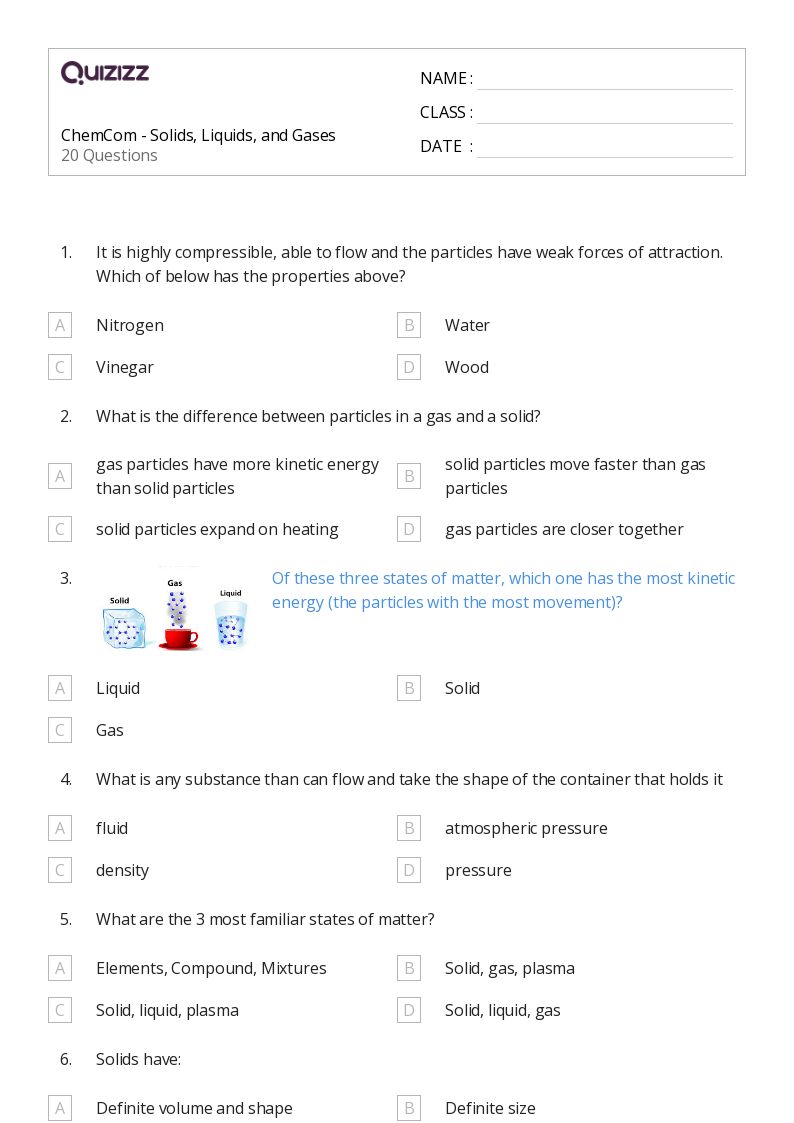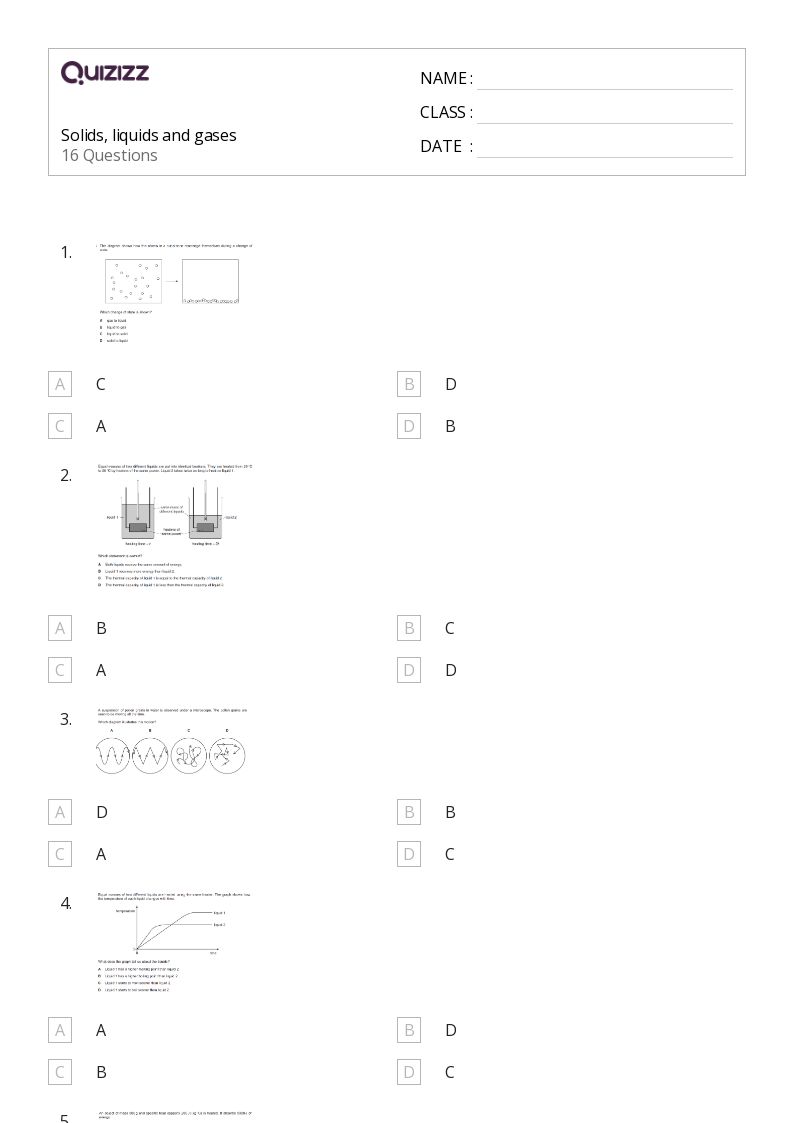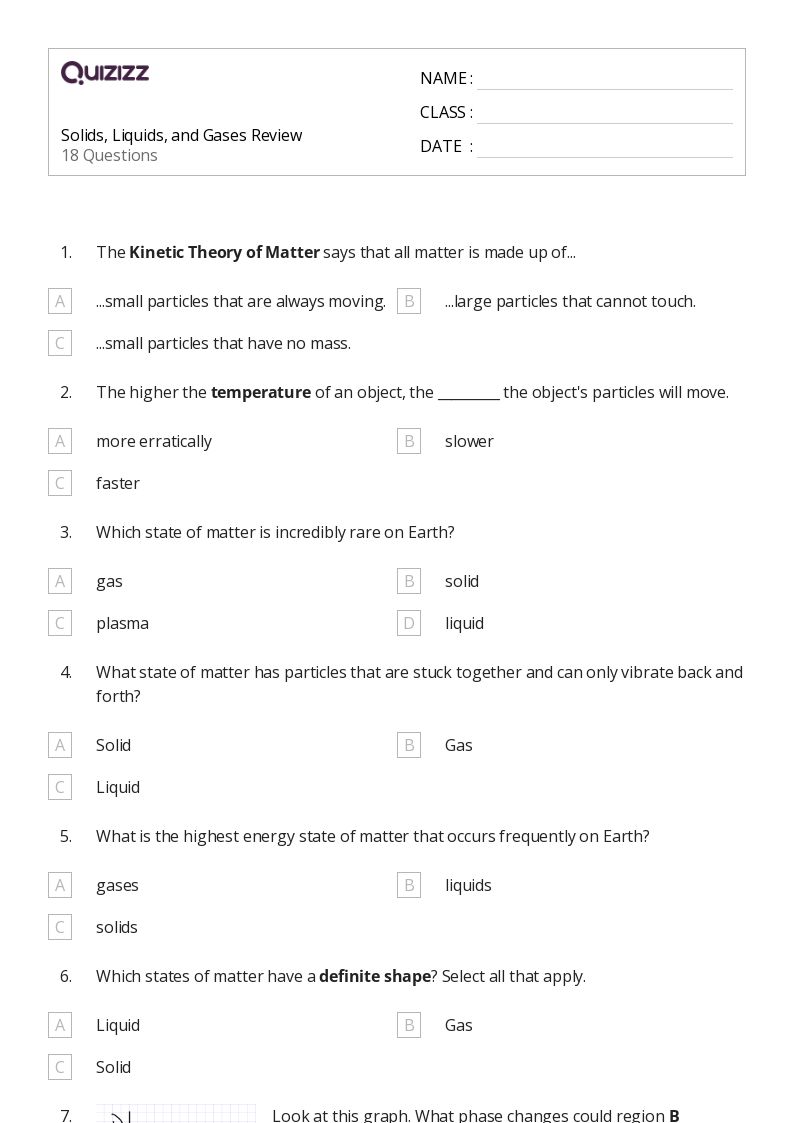
6 Q
5th - 9th

20 Q
9th - 11th

33 Q
9th - 12th

20 Q
9th - 11th

20 Q
9th

14 Q
11th

16 Q
9th - 12th

15 Q
11th

7 Q
10th

8 Q
10th - 12th

13 Q
11th

19 Q
10th - 11th

10 Q
4th - 9th

10 Q
9th - 11th

34 Q
9th - 12th

16 Q
9th - 12th

16 Q
9th - 10th

18 Q
8th - 10th

31 Q
9th - 11th

33 Q
9th - 12th

40 Q
10th - 12th

15 Q
10th

20 Q
7th - 10th
Explore Worksheets by Subjects
Explore printable solids liquids and gases worksheets
Solids, liquids, and gases worksheets are an essential tool for teachers to help students grasp the fundamental concepts of Science and Chemistry. These worksheets provide a comprehensive and engaging way for students to learn about the different states of matter, their properties, and the processes that cause them to change. By incorporating a variety of activities, such as labeling diagrams, matching exercises, and fill-in-the-blank questions, these worksheets cater to different learning styles and ensure that students have a thorough understanding of the topic. Teachers can use these resources to supplement their lesson plans, assess students' progress, and provide additional practice for those who may be struggling with the concepts. Solids, liquids, and gases worksheets are a valuable addition to any Science or Chemistry curriculum, making it easier for teachers to effectively teach this important subject matter.
Quizizz is an innovative platform that offers a wide range of educational resources, including solids, liquids, and gases worksheets, to help teachers create engaging and interactive learning experiences for their students. In addition to worksheets, Quizizz provides teachers with access to a vast library of quizzes, games, and other activities that can be easily customized to suit the needs of their students. This platform allows teachers to track students' progress in real-time, providing valuable insights into their understanding of the subject matter and helping to identify areas where additional support may be needed. By incorporating Quizizz into their Science and Chemistry lesson plans, teachers can create a more dynamic and effective learning environment that fosters a deeper understanding of solids, liquids, and gases.
